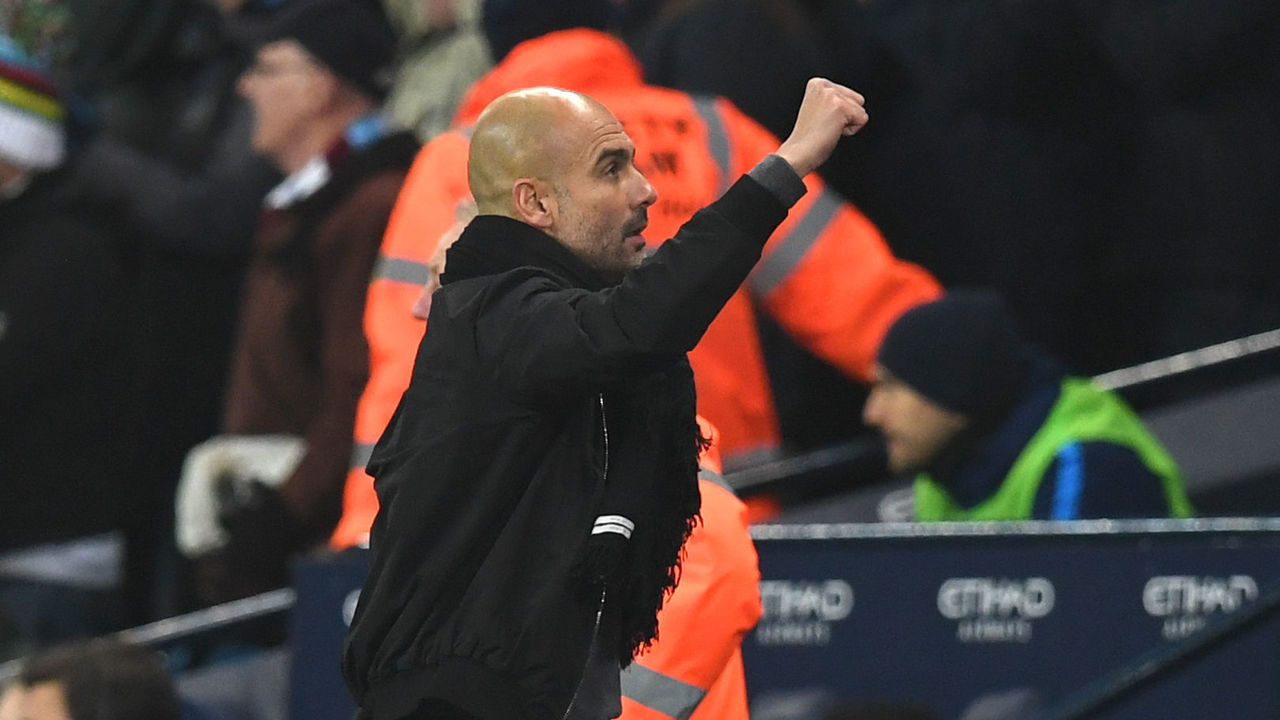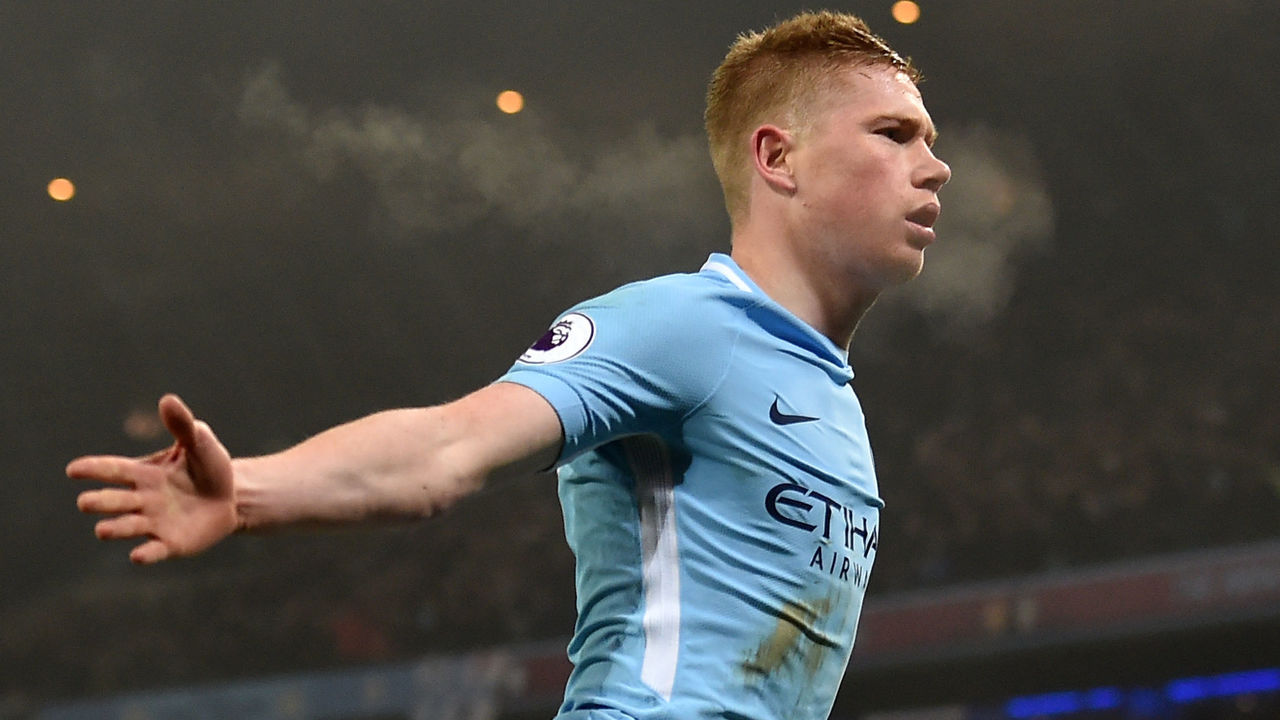How do you beat Manchester City? Some suggestions for future foes
Sitting back didn't work. Neither did the counter, nor the high press. Teams of both equal and lesser quality have tried different things just to take a point off this silky-smooth, record-breaking Manchester City side - all without success.
Tottenham was considered the last of the legions that could reasonably give City a right go, but a meek performance Saturday proved otherwise. Spurs were overpowered in midfield and restricted to a few bare-bones opportunities on goal, while City kept going and going. Kevin De Bruyne found room despite Tottenham's congested midfield diamond, Leroy Sane surged up and down the field, and Raheem Sterling kept firing until he scored. If anything, the visitor was lucky to come away with a 4-1 defeat. Such was City's dominance that the score flattered Tottenham.
So what will it take? It seems a City defeat requires the perfect storm: a combination of quick thinking, man-marking, and clinical finishing.
Teams coached by Guardiola tend to suffer when they don't enjoy their usual share of possession. When knocked off the ball, Guardiola's Barcelona, Bayern Munich, and City sides have struggled to exercise a Plan B. It's not in the Spaniard's DNA to play the long ball or revert to desperate means. He wants his teams to be in control. And when they can't exert their dominance, they're more vulnerable.
It's easier said than done. Like Barcelona and Bayern in the past, City's adept at winning the ball back when it loses possession. Guardiola trains his players to excel in second-ball scenarios and push opponents into compromising positions. His teams do virtually everything to keep the ball, even risking playing out from the back.
And at times, Guardiola's players have fallen flat on their face doing just that. Two months ago, Napoli earned a penalty in the Champions League after crowding City's defenders. It prompted questions over Guardiola's tactics, but he's always contended that hoofing the ball to safety is worse, especially against a team like Napoli with muscular, tall centre-backs.

"You play long balls against that team, in two seconds they are attacking," Guardiola said in October. "In football, how fast the ball goes, how fast it comes back."
Rather than running for cover, teams need to be more aggressive and take more risks in the middle third. Mauricio Pochettino's Espanyol secured a rare win at the Camp Nou during Guardiola's first season in charge of Barcelona by taking the game to the Catalan giant. That February 2009 victory was described as "guerrilla warfare" by one Spanish columnist.
It's no coincidence that Chelsea and Arsenal came close to defeating City this season by executing similar game plans. The Blues and Gunners limited City's possession to season lows, with Guardiola's lot mustering below its average number of shots on target (7.8) in both contests.
Another key is to identify the main conductor of Guardiola's orchestra and silence him. Man-marking someone like Kevin De Bruyne has to be opponents' first order of business. If clogging Guardiola's midfield doesn't work, then limiting De Bruyne's impact is the next best option. By putting the Belgian under pressure and reducing the space he has to create, City loses one of its only players capable of slipping a defence-splitting pass.
Jose Mourinho could've assigned Ander Herrera to man-mark De Bruyne in last weekend's Manchester derby, just as he did against Chelsea's Eden Hazard to great effect last season. A scrappy midfielder like Herrera has exactly the characteristics to unsettle a free roamer like De Bruyne.

The 26-year-old has been responsible for so many of City's points, in no small part because he can complete sensational low-percentage passes from deep positions. He inspired his team to a 2-1 victory over West Ham a few weeks ago using similar methods, setting up David Silva's smart finish inside the penalty area.
But it's all for naught if teams don't do anything meaningful when they have the ball.
The main beneficiary of City's passing game has been its defence, which has shouldered a significantly reduced burden. City's faced a Premier League-low 6.2 shots per match. That matters with Vincent Kompany and John Stones out injured; the error-prone pairing of Nicolas Otamendi and Eliaquim Mangala has less work to do and fewer opportunities to mess up.
More than anything else, it appears that City has to underperform in order to lose. This team has too much talent to be shut out. If City's ever defeated in the Premier League this season, it will likely happen on a day when it's in uncharacteristically poor form.
(Photos courtesy: Getty Images)